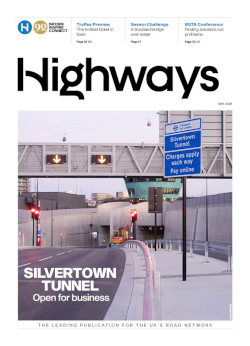Director of Highways and Transportation at Atkins, Lee Woodcock, spoke to four experts, including Josh Stitkes, the CEO of Peloton, which is an American company about to run trials in the US.
"The system components are all ready off the shelf, but the key is the system design, system implementation, and system validation," said Switkes. "Most of the platooning efforts have been industry research or academic research and thus have not tackled all of the tough challenges. These are all solvable with proper diligent automotive engineering, and at Peloton we are taking that approach."
Steve Gooding, who is Director of the RAC Foundation told Lee that this technology has more of a demand than, say, driverless cars and therefore should happen faster, "for all the talk about driverless cars, ask the cognoscenti where the near-term opportunities lie for autonomous road vehicles and they will point to the world of logistics and the scope for platooning," he said. "Not because this is inherently any easier technically than autonomy for cars, but because the pressure to improve economic efficiency is felt so keenly in the freight sector."
Professor Nick Reed from TRL agrees that economics are the driver here, but questions whether the benefits have yet been proven: "The haulage industry is run on tight margins and, despite fuel prices falling of late, a big proportion of expenditure for companies operating trucks is on fuel. The efficiency benefits of platooning are significant ' potentially as much as 15 per cent. However, we need to understand whether, over the course of typical journeys, that level of benefit can be sustained to warrant the investment in the technology."
Meanwhile Dr John McCarthy, Technical Director at Atkins warned that the wider transport industry must play its part too, "The timescale depends on more than just this technology," he said. "It is important to understand that platooning cannot be considered in isolation but must be addressed from an overall effective traffic management perspective."
In his conclusion, Woodcock says that the investigation gives me confidence that we are on the right track and that the technology's readiness and Peloton's work is taking the right steps to make platooning a reality. But broader work is required across the industry. "I think the question of the customer remains - is this the transport operator, the network manager or another body? The investigation also highlights the issues of safety, standards and legislation ' so it looks like there is plenty of work still to do before platooning is seen large scale on our roads," he says.
The Investigation features in the next issue of Smart Highways which is being printed now and, as well as for existing subscribers, will be available at the ITS Europe Congress in Glasgow. You can read the Investigation online here.





